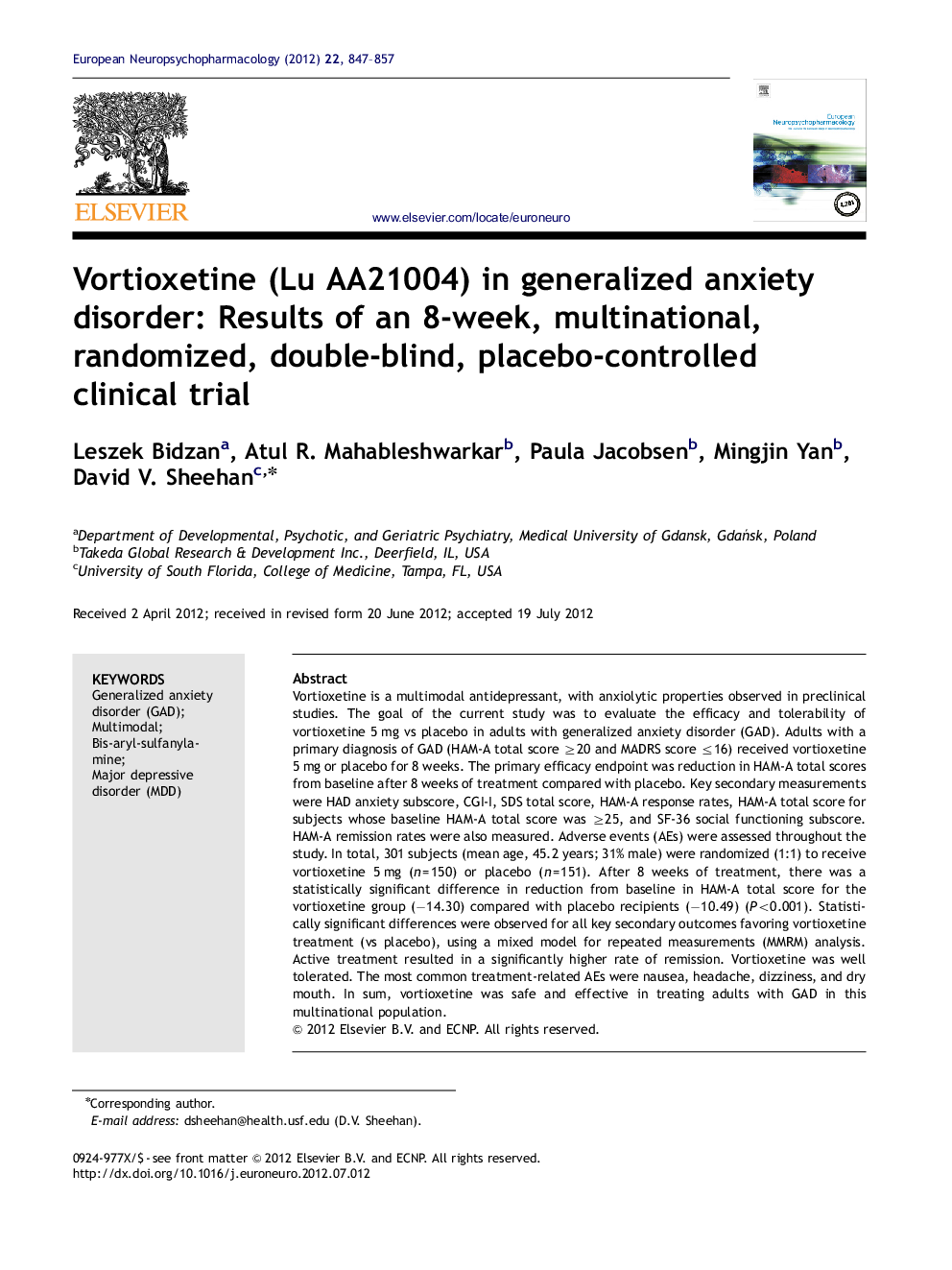| Article ID | Journal | Published Year | Pages | File Type |
|---|---|---|---|---|
| 318887 | European Neuropsychopharmacology | 2012 | 11 Pages |
Vortioxetine is a multimodal antidepressant, with anxiolytic properties observed in preclinical studies. The goal of the current study was to evaluate the efficacy and tolerability of vortioxetine 5 mg vs placebo in adults with generalized anxiety disorder (GAD). Adults with a primary diagnosis of GAD (HAM-A total score ≥20 and MADRS score ≤16) received vortioxetine 5 mg or placebo for 8 weeks. The primary efficacy endpoint was reduction in HAM-A total scores from baseline after 8 weeks of treatment compared with placebo. Key secondary measurements were HAD anxiety subscore, CGI-I, SDS total score, HAM-A response rates, HAM-A total score for subjects whose baseline HAM-A total score was ≥25, and SF-36 social functioning subscore. HAM-A remission rates were also measured. Adverse events (AEs) were assessed throughout the study. In total, 301 subjects (mean age, 45.2 years; 31% male) were randomized (1:1) to receive vortioxetine 5 mg (n=150) or placebo (n=151). After 8 weeks of treatment, there was a statistically significant difference in reduction from baseline in HAM-A total score for the vortioxetine group (−14.30) compared with placebo recipients (−10.49) (P<0.001). Statistically significant differences were observed for all key secondary outcomes favoring vortioxetine treatment (vs placebo), using a mixed model for repeated measurements (MMRM) analysis. Active treatment resulted in a significantly higher rate of remission. Vortioxetine was well tolerated. The most common treatment-related AEs were nausea, headache, dizziness, and dry mouth. In sum, vortioxetine was safe and effective in treating adults with GAD in this multinational population.
